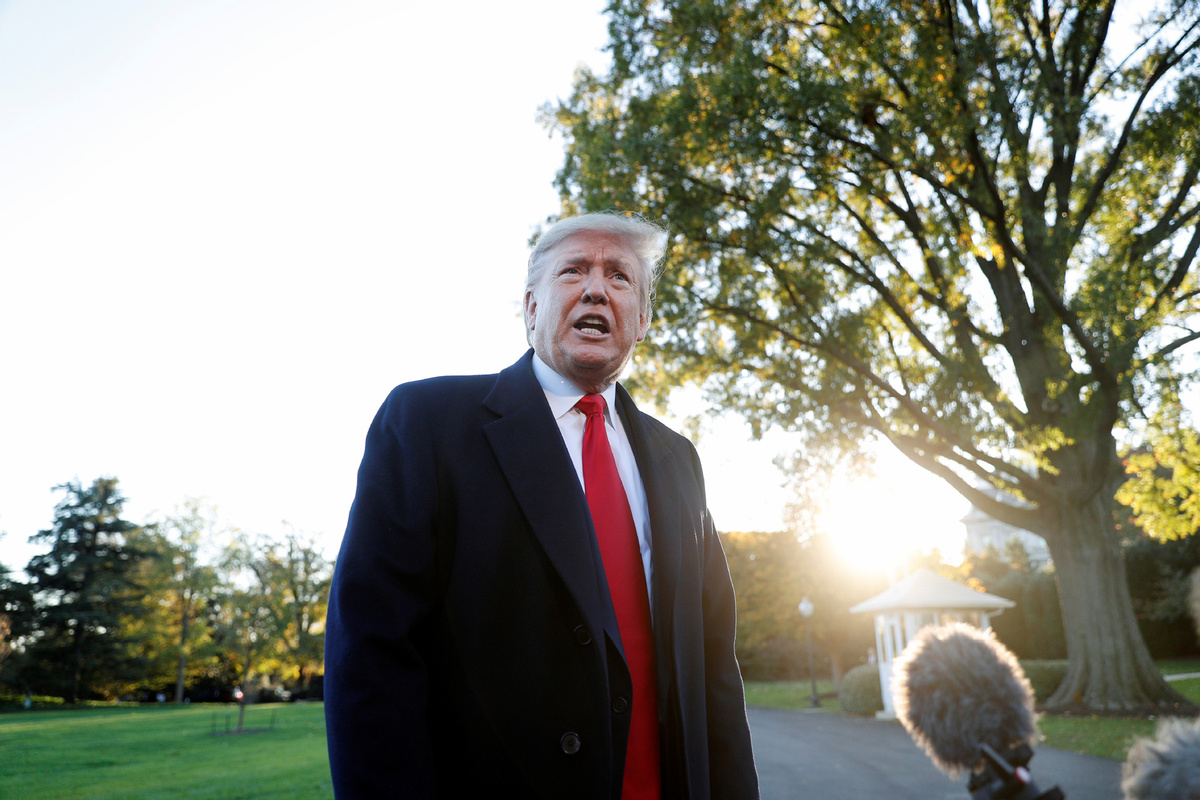Impact of Trump impeachment proceedings unknown


The impeachment proceedings against United States President Donald Trump could shape and sway public opinion and impact the 2020 presidential campaign one way or another, analysts said.
The House of Representatives, in a 232-196 mostly party-line vote on Thursday, approved rules for the next, more public stage in the Democratic-led impeachment inquiry into Trump's alleged attempt to have Ukraine investigate former vice-president Joe Biden and his son Hunter for alleged financial improprieties and abuse of power.
Over the past five weeks, the probe has primarily been shaped by closed-door testimony from several officials who have raised questions about whether Trump and his inner circle withheld nearly $400 million in security aid for Ukraine in order to pressure Kiev to investigate Trump's political rivals, thehill.com reported.
The probe focuses on a July 25 telephone call in which Trump asked his Ukrainian counterpart, Volodymyr Zelensky, to investigate Joe Biden, a 2020 candidate for the Democratic presidential nomination, and his son Hunter, who had served as a director for Ukrainian energy company Burisma Holdings.
"The fundamental question is how the strategies of the two parties will affect the portion of the public that has not yet made up its mind," William A. Galston, a senior fellow in governance at the Brookings Institution, told China Daily.
"The Democrats will argue that the Republicans are blindly defending Trump, but the Republicans will retort that Democrats are blindly attacking him. If both parties are seen as acting in a purely partisan fashion, it's not clear which (if either) will gain an advantage," Galston added.
If the House eventually votes to impeach Trump, it would lead to a trial in the Republican-controlled Senate. Trump would not be removed from office unless the Senate votes to convict him by a two-thirds majority, or 67 votes, something that looks unlikely as congressional Republicans have been reluctant to move against the president.
Cal Jillson, a political scientist and historian at Southern Methodist University in Dallas, Texas, said Trump's strategy to combat the impeachment inquiry, as with previous inquires, will continue to be to "denigrate and discredit" the process and all who participate in the proceedings.
"The difference in this case is that soon there will be extensive public hearings in which those offering evidence will do so in person and on camera, where the public can form their own opinions of their candor and veracity. The public's assessments may differ from those of President Trump," Jillson said.
"His best hope is that the Senate finds the evidence embarrassing, but not rising to the level of an impeachable offense, and acquits him in time for the whole thing to fade from public memory," he said.
Galston said that the US leader will likely be forced to eventually address the substance of the charges against him.
"Once he does so, he will have two strategic options: to claim that he didn't do what he is accused of doing, or to admit that he did it but argue that it wasn't wrong and that all politicians do the same kind of thing," he said.
He said that up until now, the controversy has had little impact on Trump's job approval, and nearly all Republicans continue to support him.
"If these two factors shift against him during the inquiry, his prospects for reelection will diminish," Galston said.
William C. Banks, co-author of National Security Law and the Power of the Purse, a 1994 book about tensions between the executive and legislative branches over security and spending, said that to win a second term, Trump would need the impeachment effort to fail and backfire, showing the Democrats as interested only in partisan victory and not the rule of law.
"If the public impeachment process builds the Ukraine abuse of office case clearly so that average Americans can see what the president did, it should lead to impeachment and a trial in the Senate," said Banks, a Syracuse University College of Law professor.
"From there on, everything depends on events that have yet to occur," he said.
Stanley Renshon, a political scientist at City University of New York, said he believed the impeachment attempts will "both help and hurt" Trump's reelection campaign.
"It will mobilize Democrats who want to get rid of him and Republicans who think, whatever the facts, he has been 'railroaded'," Renshon said.
The crucial groups will be GOP moderates in the suburbs and independents, he added.
Two Democrats voted against the resolution Thursday, one independent voted in favor, and four members did not vote.
Belinda Robinson in New York and Reuters contributed to this story
































